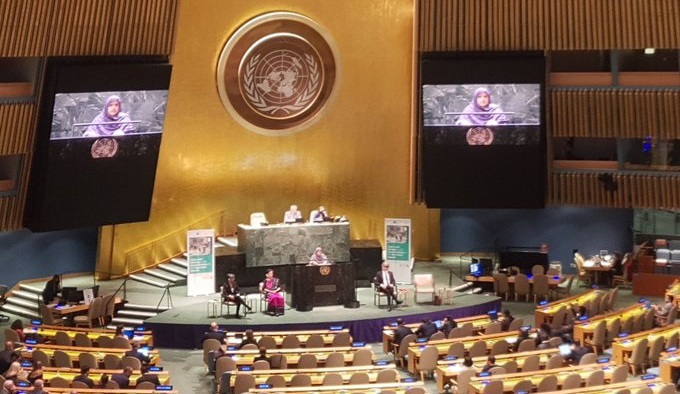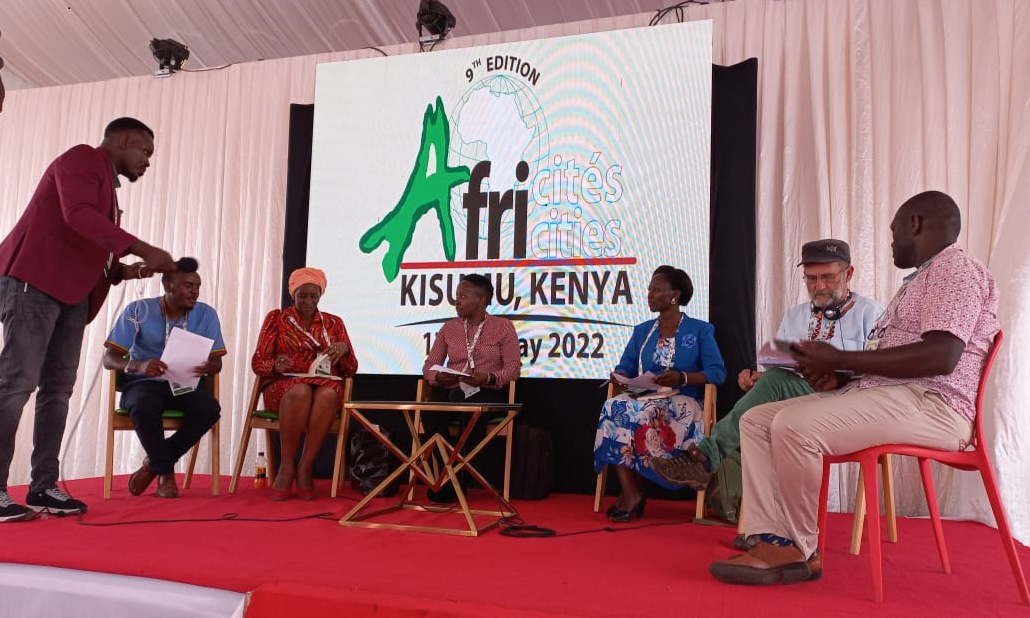Poverty eradication is the greatest global challenge
facing the world today and an indispensable requirement for sustainable
development. We are therefore committed to freeing humanity from poverty and
hunger as a matter of urgency.
We recognize
that poverty eradication, changing unsustainable and promoting sustainable
patterns of consumption and production and protecting and managing the natural
resource base of economic and social development are the overarching objectives
of and essential requirements for sustainable development.
We reaffirm our commitment to fully
implement the Rio Declaration on Environment and Development, Agenda 21, the
Programme for the Further Implementation of Agenda 21, the Plan of
Implementation of the World Summit on Sustainable Development (Johannesburg
Plan of Implementation) and the Johannesburg Declaration on Sustainable
Development of the World Summit on Sustainable Development, the Programme of
Action for the Sustainable Development of Small Island Developing States
(Barbados Programme of Action) and the Mauritius Strategy for the Further
Implementation of the Programme of Action for the Sustainable Development of
Small Island Developing States. We also reaffirm our commitment to the full
implementation of the Programme of Action for the Least Developed Countries for
the Decade 2011-2020 (Istanbul Programme of Action), the Almaty Programme of
Action: Addressing the Needs of Landlocked Developing Countries within a New
Global Framework for Transit Transport Cooperation for Landlocked and Transit
Developing Countries, the political declaration on Africa’s development needs,
and the New Partnership for Africa’s Development.
We reaffirm that we continue to be guided by the purposes and principles
of the Charter of the United Nations, with full respect for international law
and its principles. We further reaffirm the importance of freedom, peace and
security, respect for all human rights, including the right to development and
the right to an adequate standard of living, including the right to food, the
rule of law, good governance, gender equality, women’s empowerment and the
overall commitment to just and democratic societies for development. We reaffirm the importance of the Universal
Declaration of Human Rights, as well as other international instruments
relating to human rights and international law.
We recognize
that people are at the centre of sustainable development and, in this regard,
we strive for a world that is just, equitable and inclusive, and we commit to
work together to promote sustained and inclusive economic growth, social
development and environmental protection and thereby to benefit all.
We affirm
that there are different approaches, visions, models and tools available to
each country, in accordance with its national circumstances and priorities, to
achieve sustainable development in its three dimensions.
We recognize that each
country faces specific challenges to achieve sustainable development, and we
underscore the special challenges facing the most vulnerable countries and, in
particular, African countries, least developed countries, landlocked developing
countries and small island developing States, as well as the specific
challenges facing the middle-income countries. Countries in situations of conflict
also need special attention.
We reaffirm
all the principles of the Rio Declaration on Environment and Development,
including, inter alia, the principle of common but differentiated
responsibilities, as set out in principle 7 thereof.
We reaffirm
our commitment to strengthen international cooperation to address the
persistent challenges related to sustainable development for all, in particular
in developing countries. Sustainable development can only be achieved with a
broad alliance of people, governments, civil society and the private sector, all
working together to secure the future we want for present and future
generations.
We reaffirm that the means of
implementation identified in Agenda 21, the Programme for the Further
Implementation of Agenda 21, the Johannesburg Plan of Implementation, the
Monterrey Consensus of the International Conference on Financing for
Development and the Doha Declaration on Financing for Development are
indispensable for achieving the full and effective translation of sustainable
development commitments into tangible sustainable development outcomes. We
reiterate that each country has primary responsibility for its own economic and
social development and that the role of national policies, domestic resources
and development strategies cannot be overemphasized. We reaffirm that
developing countries need additional resources for sustainable development. We
recognize the need for significant mobilization of resources from a variety of
sources and the effective use of financing, in order to promote sustainable
development. We acknowledge that good governance and the rule of law at the
national and international levels are essential for sustained, inclusive and
equitable economic growth, sustainable development and the eradication of
poverty and hunger.
Sustainable
Development Goals are accompanied by targets and will be further elaborated
through indicators focused on measurable outcomes. They are action oriented,
global in nature and universally applicable to all countries, while taking into
account different national realities, capacities and levels of development and
respecting national policies and priorities. They integrate economic, social and
environmental aspects and recognize their interlinkages in achieving
sustainable development in all its dimensions.


